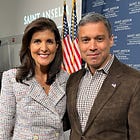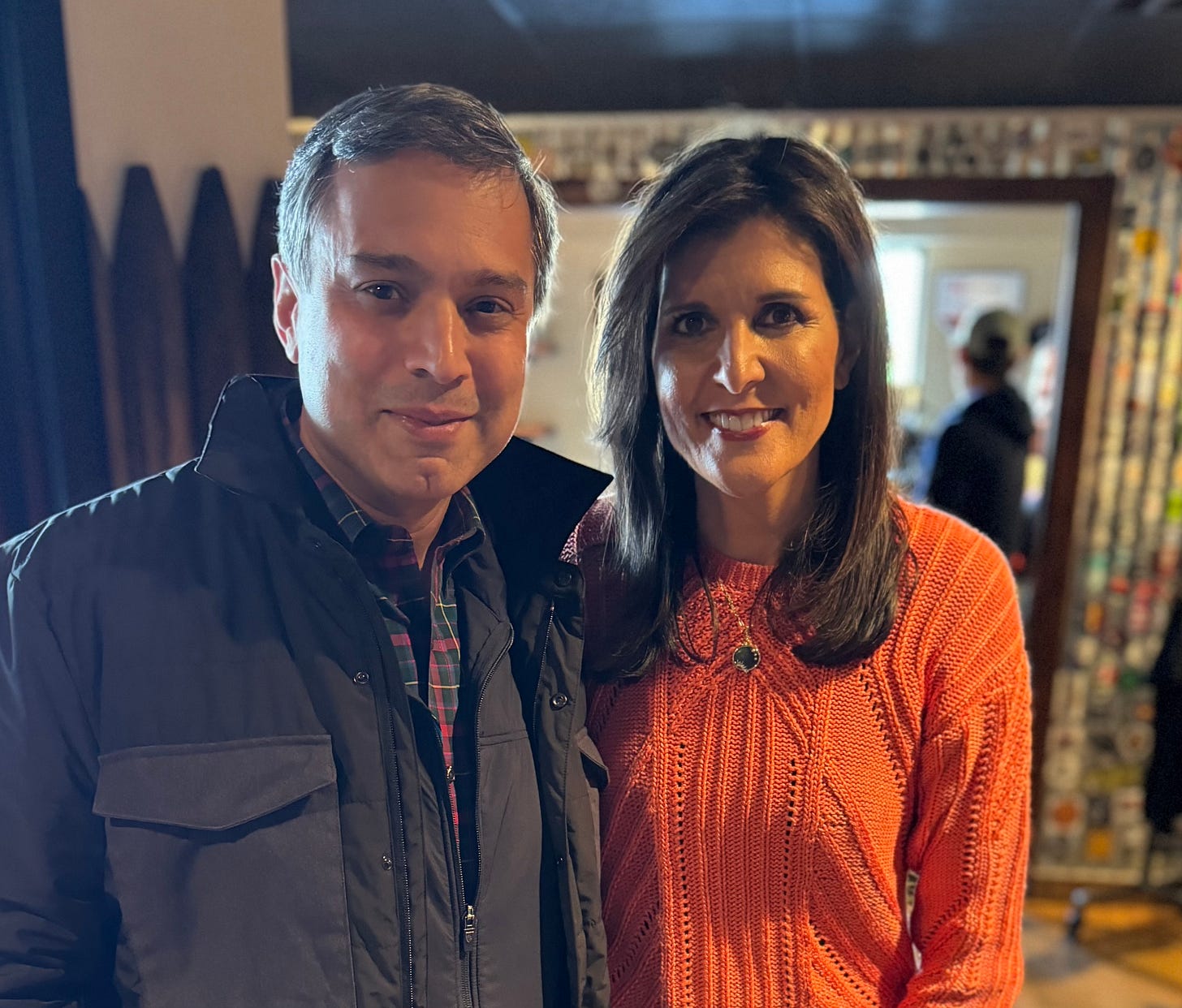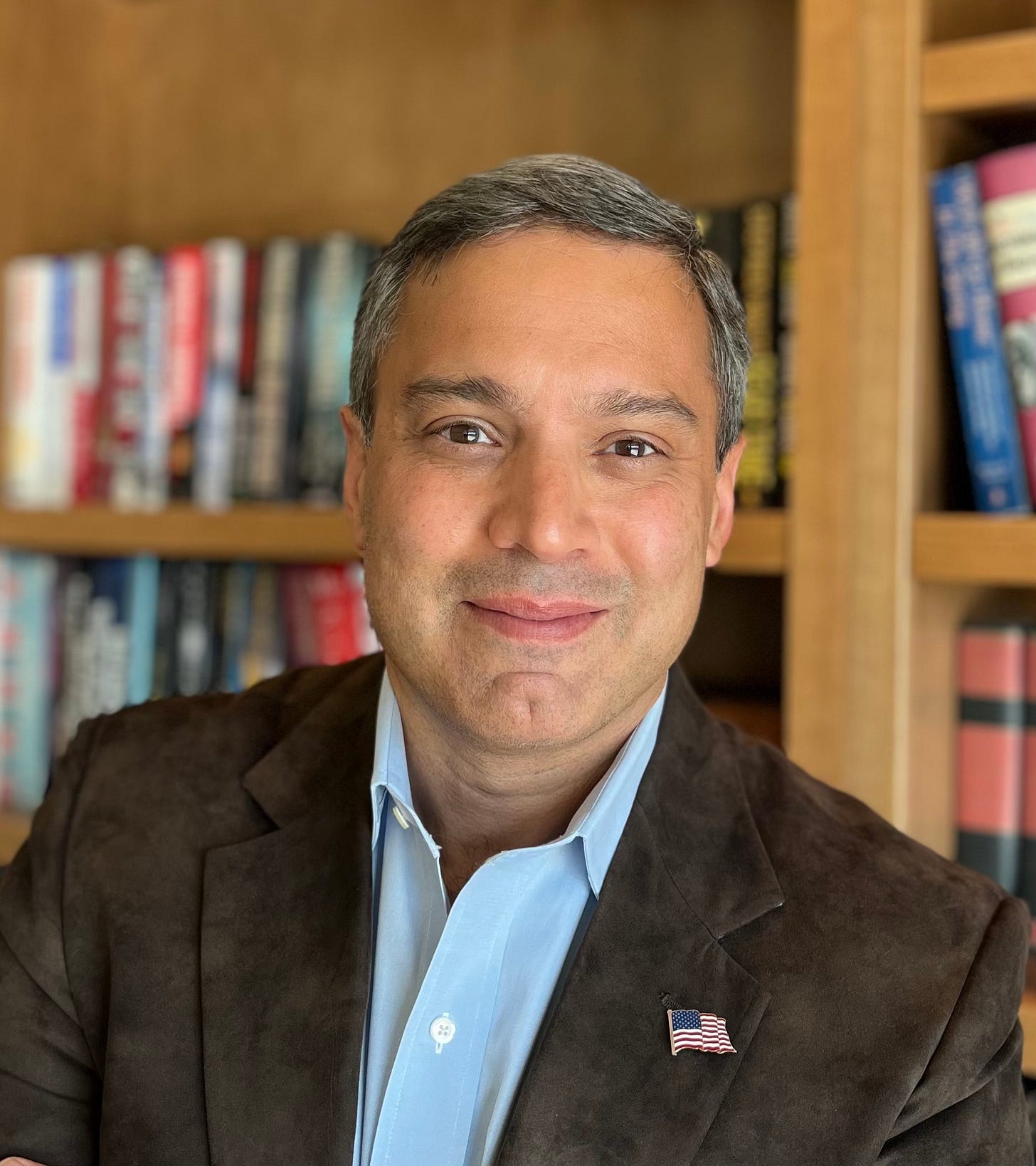Yesterday, hundreds of thousands of Granite Staters cast their ballots in the country’s first primary. Donald Trump won. As I’ve written before, what happens in New Hampshire won’t stay in New Hampshire. So what happened?
First of all, voters recognized the importance of the election; turnout was higher than prior presidential primaries and included significant independent or “undeclared” voters. Several factors contributed to the high participation, including cooperative weather and a significant effort from New Hampshire’s popular governor Chris Sununu. The Democrat primary had much lower turnout, and Congressman Dean Philips posted a reasonable showing given his recent candidacy. The main story, unsurprisingly, was the Republican primary.
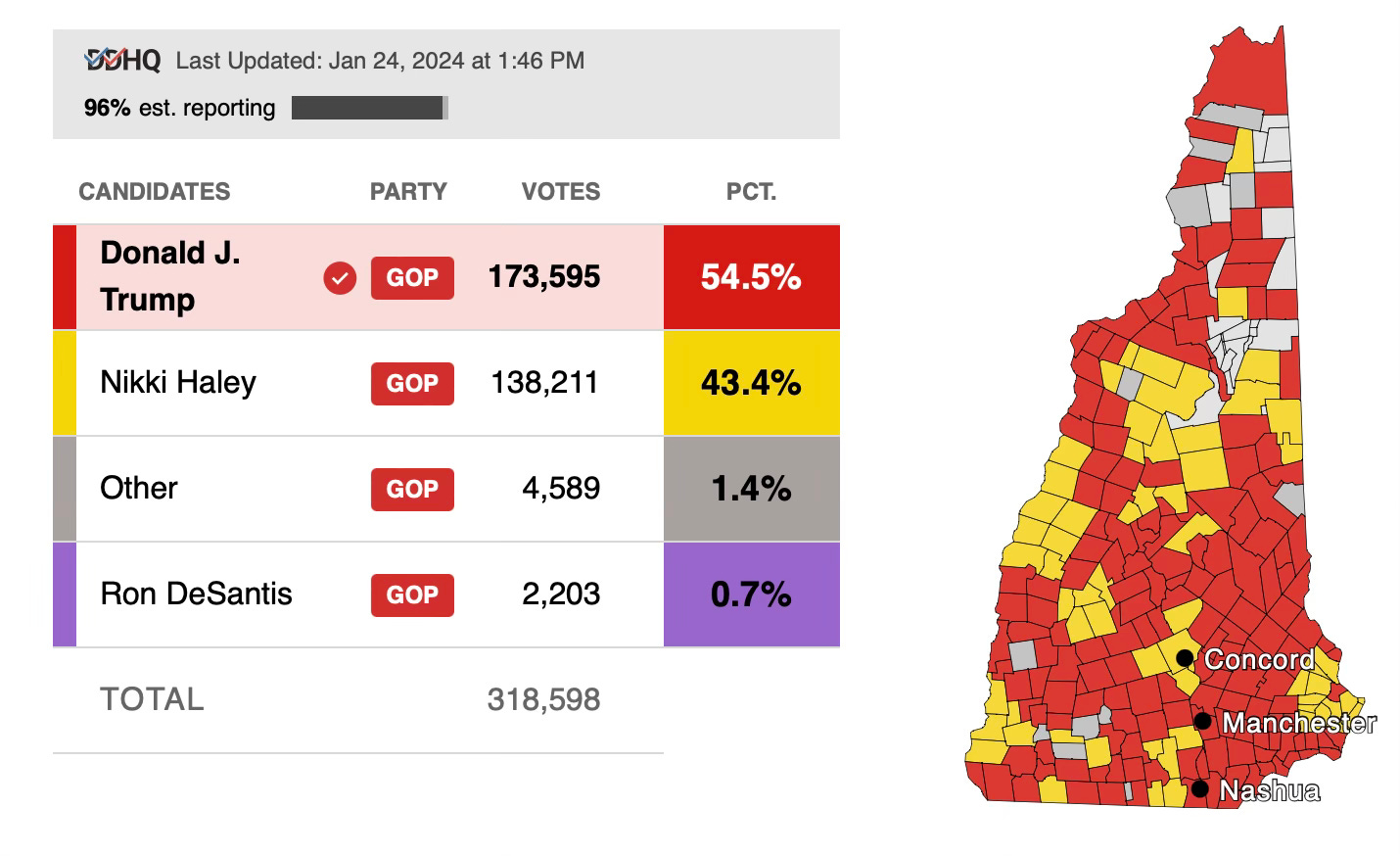
There were some cross-currents in terms of pre-election expectations. A few weeks ago, some polls were suggesting the gap between former President Trump and Ambassador Haley had converged to single digits. More recent polls suggested that former President Trump, in a head to head competition with Ambassador Haley, had a twenty-plus point lead. As of this writing, it appears President Trump won by more than eleven points.
Exit polls also revealed a great deal about New Hampshire voters concerns, and these insights will almost certainly go on to influence campaign strategies from now until November. At the top of voter minds were the economy and immigration. Almost 70% of primary voters noted the economy was “not good” and 34% of those casting ballots felt it was the most important issue for them. Immigration closely followed the economy with 31% of primary voters saying it was their most important issue. Going forward, expect both campaigns to increase their focus and rhetoric on these two issues.
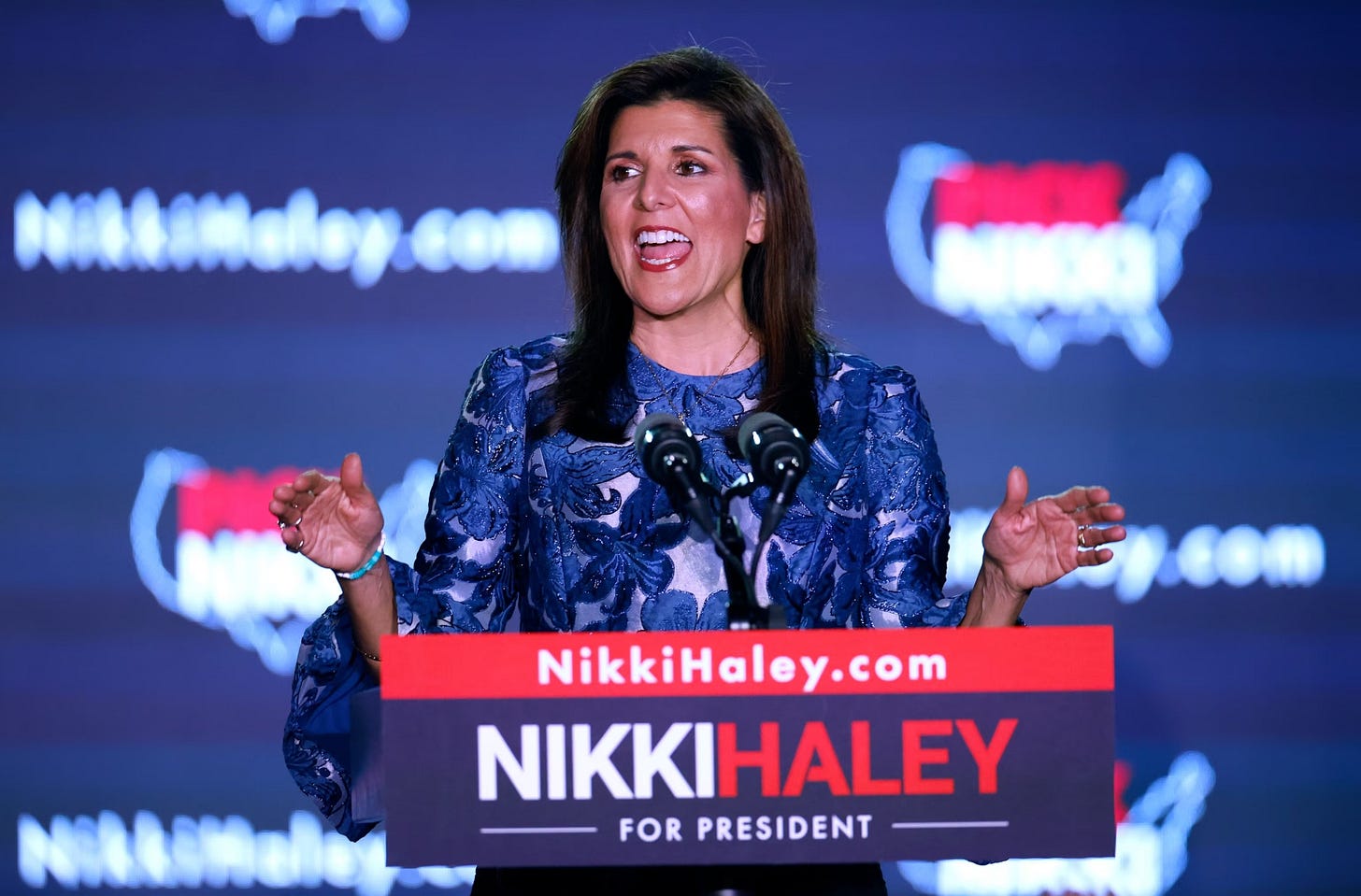
In terms of foreign policy, exit polls also revealed a large difference between Trump and Haley supporters when it came to the topic of foreign policy. While only thirty percent of those who voted for Ambassador Haley wanted to see America less active in world affairs, about half of Trump’s supporters wanted the country less engaged globally. As many observers are aware, there is a growing fissure within the Republican Party about America’s role in the world, and that difference was on full display in New Hampshire.
As expected, there was also a notable difference in voter behavior based on education levels. Of those without college degrees, more than two-thirds chose former President Trump while around 60% of college graduates who voted cast their ballot for Ambassador Haley. This trend mirrors national trends.
Belief in the legitimacy of the 2020 election also divided those who voted along candidate lines. Around 80% of those who voted for Trump deny that Joe Biden won the last election, while most of Haley’s supporters acknowledge Joe Biden is the legitimate president of the United States.
Many are now suggesting that Ambassador Haley should suspend her campaign and go on to say they just don’t see a path for her to win. Republican pundits, operatives, and strategists (and even the Republican National Committee) are calling for the party to unify around former President Trump to avoid a messy few weeks between now and Super Tuesday. While she may not have a wide path, we shoudn’t count her out. The next big contest, South Carolina, is in her home state and she knows it better than anyone. She’s been underestimated before. And let’s also remember that the first three major contests (Iowa, New Hampshire, and South Carolina) are historically used to narrow the field of candidates, not to anoint a “chosen one.” Through hard work, impressive debating, and effective campaigning, Ambassador Haley emerged from a crowded pack of hopefuls sooner than expected.
Some have also pointed to Haley’s dependence upon undeclared voters as a source of weakness, suggesting that New Hampshire was her “best shot” as she lacks support within the Republican Party. This is also wrong, for two reasons. First, many Granite Staters avoid party association because different issues motivate them at different times. Some may be very conservative on social matters, while others may care deeply about national security. Lots of undeclared voters consistently vote Republican. Second, many of the upcoming primaries are open or semi-open, meaning independents will play a meaningful role. Michigan, Virginia, Texas, Maine, Massachusetts, Minnesota, North Carolina, and Vermont all fit into this category but follow South Carolina.
Ambassador Haley has developed undeniable momentum, having distinguished herself from a crowded field as the sole remaining viable alternative to former President Trump. Simply put, she’s risen from 2% in the polls upon entering the race to earning more than 43% of the vote in New Hampshire. Let’s also not forget that this was a three person race less than 36 hours before the New Hampshire primary began. Primary voters and even donors are still digesting the reality that we are in the midst of a two-person race.
Polls also show Haley beating Biden by a larger margin than Trump, a dynamic that could help Republicans down ballot in November. The popularity of songs such as Oliver Anthony’s Rich Men North of Richmond demonstrate a genuine desire for someone to “drain the swamp,” for a non-establishment candidate. And yet President Trump, once a powerful disruptor, is now regularly parading establishment endorsers as validation of his momentum and popularity. Ambassador Haley is a next generation conservative disruptor. She’s also the only one who can help make America normal again.
Finally, we need to acknowledge that there have been less than 500,000 votes cast in two states during the Republican primary so far. The millions of other voters in the other 48 states also deserve the ability to express their convictions. Bottom line: it is too early to think this race is over.
Vikram Mansharamani, a 2022 candidate for the U.S. Senate, lives in Lincoln, New Hampshire and helped the Nikki Haley Campaign as one of the New Hampshire co-chairs. He is the author of the recently-released The Making of a Generalist: An Independent Thinker Finds Unconventional Success in an Uncertain World.
Vikram's New Book: Order Your Copy Now!
"Frustrated with our polarized culture? Take this incredibly fun ride through the life of modern day Renaissance man Vikram Mansharamani to appreciate a simple solution-open-minded, generalist thinking. This book is an enjoyable read that lays out a viable path to move beyond today's identity-driven, label-dominated world." - Christopher T. Sununu, Governor; State of New Hampshire
About Vikram
VIKRAM MANSHARAMANI is an entrepreneur, consultant, scholar, neighbor, husband, father, volunteer, and professional generalist who thinks in multiple-dimensions and looks beyond the short-term. Self-taught to think around corners and connect original dots, he spends his time speaking with global leaders in business, government, academia, and journalism. LinkedIn has twice listed him as its #1 Top Voice in Money & Finance, and Worth profiled him as one of the 100 Most Powerful People in Global Finance. Vikram earned a PhD From MIT, has taught at Yale and Harvard, and is the author of two books, Think for Yourself: Restoring Common Sense in an Age of Experts and Artificial Intelligence and Boombustology: Spotting Financial Bubbles Before They Burst. Vikram lives in Lincoln, New Hampshire with his wife and two children, where they can usually be found hiking or skiing.





